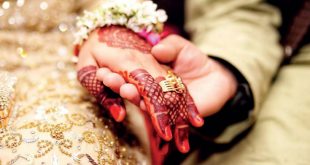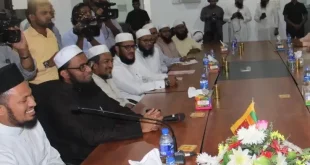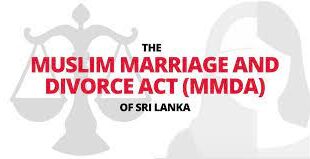Divorce is distasteful to anyone but it needs to be considered as an option
‘Law is Light’ is a trilingual legal project to shed light on the law. The Latin maxim ‘ignorantia legis neminem excusat’ translates to ‘ignorance of the law is not an excuse’. The Pro Bono Committee of the Law Students’ Association of Sri Lanka strives to educate the general public by simplifying the laws in our country. In the 5th discussion, the program focused on ‘Divorce laws in Sri Lanka’. The discussion featured Attorney-at-Law, Safana Gul Begum.
What are the types of divorces according to the Muslim Marriage and Divorce Act of Sri Lanka (MMDA), and their grounds?
The MMDA governs marriages, divorces and other related matters concerning Muslims citizens of Sri Lanka. There are three types of divorce.
 i. Initiated by the husband, called Talak (or Talaq)
i. Initiated by the husband, called Talak (or Talaq)
There are no grounds for a husband to pronounce Talak on his wife, he can simply go to the Quazi court and in the presence of two witnesses and the Quazi, pronounce Talak. According to Islamic principles there are three forms of Talak: Talak Ahsan (one pronouncement and three reconciliation efforts within three months), Talak Hassan (three pronouncements and three reconciliation efforts within three months) and Talak ul Biddat (triple Talak at a time within one month reconciliation effort). But only the Ahsan form of Talak exists in Sri Lanka.
ii. Initiated by the wife: Fasah (or Fasakh) and Khula
Without the consent of the husband the wife can obtain Fasah but she has to have grounds. Fasah divorce can be obtained on grounds of ill-treatment (physical, verbal or mental), fault (an act or omission, for example non maintenance or desertion) and non-fault (inability to maintain, leprosy, insanity and impotence of the husband). In the case of impotence, it must have been so from before marriage. In Khula there need not be grounds for a wife to obtain a divorce. The wife has to receive the husband’s consent to get the divorce and she has to pay him compensation.
iii. Divorce on mutual consent
Can a person who is married under the MMDA obtain a divorce under general law of Sri Lanka?
No. According to the General Marriage Registration Ordinance (GMRO) or Civil Procedure Code, Muslims of Sri Lanka are prohibited from marrying under the GMRO. If the marriage is contracted under the MMDA it has to be dissolved according to the MMDA.
What is the procedure to file for divorce? Is the divorce procedure the same for both men and women, under the MMDA?
The divorce has to be filed at the Quazi in the area where the wife resides. Pronouncement of Talak is an inherent right of a Muslim man, without the mention of any reason, and the Quazi has to allow him to pronounce Talak.
In Fasah divorce, the wife has to prove grounds with evidence. Her evidence alone is insufficient; they have to be corroborated by two other witnesses on her behalf. We see that there is no equality in divorce procedure under the MMDA.
Can a woman file for divorce if she finds out that her husband married a second time without her knowledge or consent?
S.24(1) of the MMDA defines the duties cast on a husband who opts for a second or subsequent marriage. Thirty days before the marriage, he has to notify the Quazis to the areas where his previous wife or wives reside, the area where he resides and the area where his future wife resides. That is the only duty mentioned, with regard to the husband. According to the statutory law, the husband does not require the consent of his present wife. Thereby it cannot be grounds for divorce for a wife.
Can a Muslim woman enter into a marriage under the term that the husband cannot marry a second time and in the event he does, that she will file for divorce?
There is no specific provision in the MMDA but there is a type of Talak, referred to as Talaq-e-tafweez, which is not practised in Sri Lanka. This type of Talak affords the wife the right to pronounce Talak on the husband, a right delegated by her husband either prior to or after the marriage, on violation of any terms or conditions. For example, if there is a condition between husband and wife, that if the husband enters into a second or subsequent marriage, the wife can pronounce Talak on him, the wife can do so if he violates this condition.
Can a lawyer accompany a client to the Quazi court on behalf of the client’s divorce case?
No. S.74 of the MMDA prohibits a lawyer from appearing for or representing any party at the Quazi Court. But it is possible in the Board of Quazis.
Does the husband have to maintain the wife after divorce?
S.47 (1) (d) MMDA states that there is a three-month iddat period after the divorce and the husband is duty-bound to maintain his wife during this period. If the wife is pregnant during the divorce, the husband has the legal duty to maintain the wife until she gives birth. Other than that there is no maintenance after the divorce, no alimony like GMRO in MMDA.
But under Islamic principles a divorced wife is entitled to consolatory payment, called Matha after the divorce.
What happens to children whose parents get divorced?
The sole liability to maintain the children lies with the father; female children until they get married and male children until they are gainfully employed.
Custody matters are handled by the District Court of Sri Lanka and as the Upper Guardian, the courts give emphasis to the best interest of the children.
There is an ongoing debate on the subject of consent for marriage in Sri Lanka. If either of the two individuals getting married (the man or the woman) does not consent, such a marriage is null and void, according to the teachings of the Prophet. There is also a consensual aspect with regard to the father of the one to be married, as the father has to sign the marriage contract. There are two types of consent here. Can you explain how each is perceived in Sri Lankan culture and how effective both types of consent are.
According S.25 of MMDA, as per the Shafi sect, the bride’s Wali’s (marriage guardian) consent is a mandatory requirement for a valid marriage. The Act mentions that the consent of the bride has to be obtained, but there is no procedure to prove that consent was obtained. In the case of the Hanafi sect, the Wali’s consent is not required, the woman can sign the marriage certificate herself.
If a woman claims that she was forced into marriage, which was signed by the Wali, will such a marriage be null and void? According to the Prophet’s teachings, a marriage which a woman is forced into is null and void. In other words she does not need to seek a divorce as the marriage did not exist to begin with. Is it the same under the MMDA?
No, it is not.
The complete discussion is available on YouTube channel ‘Law Students Association of Sri Lanka’, in all three languages. These laws are subject to change with future developments by the Legislature.
(Compiled by Zeenath Zakir Pro Bono Secretary 2020-2021)
source : island.lk
Post Disclaimer | Support Us
Support Us
The sailanmuslim.com web site entirely supported by individual donors and well wishers. If you regularly visit this site and wish to show your appreciation, or if you wish to see further development of sailanmuslim.com, please donate us
IMPORTANT : All content hosted on sailanmuslim.com is solely for non-commercial purposes and with the permission of original copyright holders. Any other use of the hosted content, such as for financial gain, requires express approval from the copyright owners.
 Sri lanka Muslims Web Portal Sri Lanka Muslims News Center
Sri lanka Muslims Web Portal Sri Lanka Muslims News Center
 Donate
Donate


